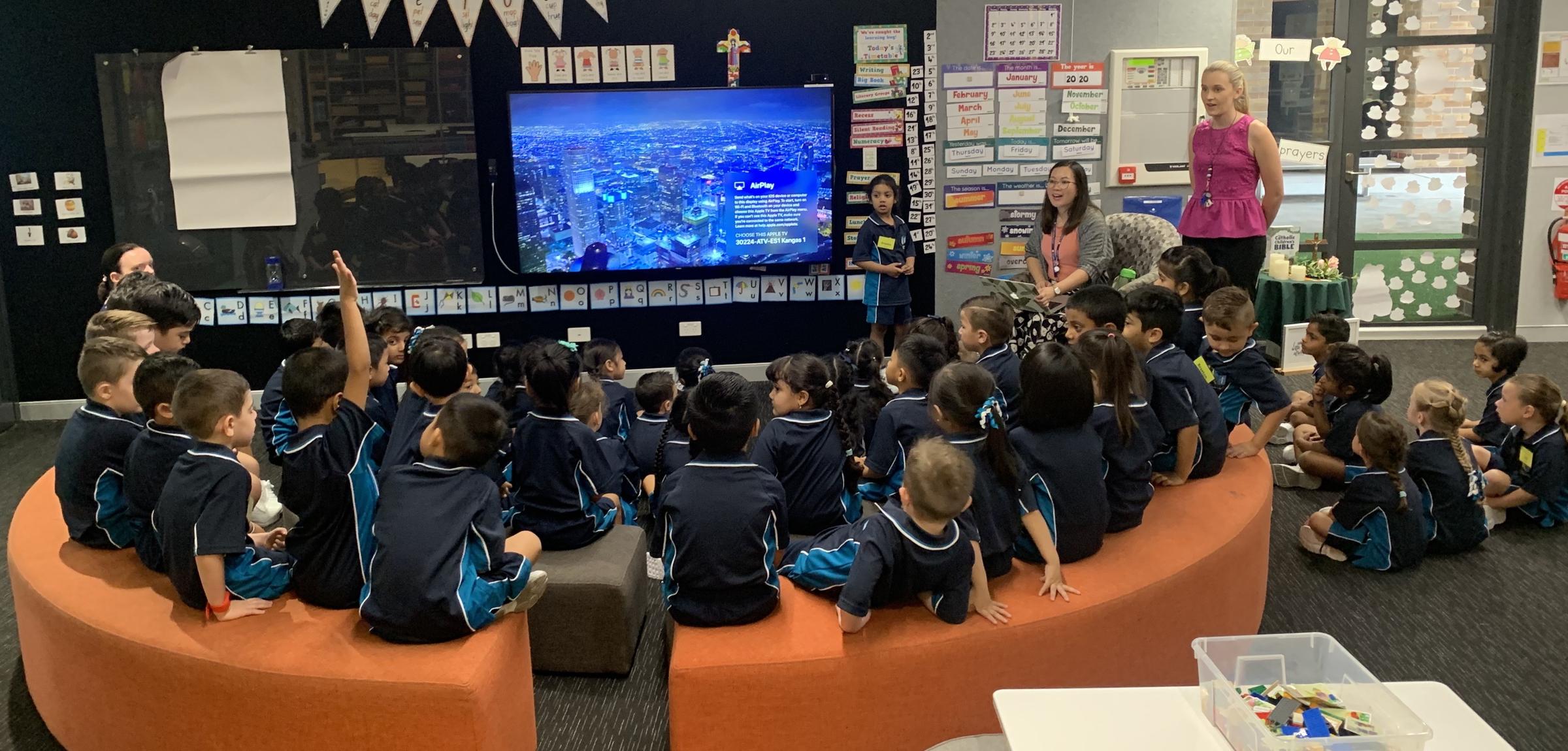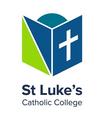
School of Foundations
Choir postponed until further notice
Choir has been postponed until further notice due to current health regulations. NSW Health and CEDP have recommended that singing groups, such as choir, need to stop to keep everyone safe.
We will let you know when this changes and when choir is able to start again.
Early Stage 1
Reading At Home
It has been wonderful to see so many students take off in reading this term! Most students are reading each day at home and the impact it is having is evident in their increasing knowledge of sight words and consolidation of the reading skills being taught at school. Each student has a reading goal which identifies one thing your child is working on in their reading. This week, each student will receive their own username and password for the PM eCollection. This is a fabulous online reading resource that will supplement the home readers that are sent home.
Reading Tips!
Over the next three editions of The Net, we will look at the Pause, Prompt and Praise strategies designed for parents to help their child when reading at home.
It is easy for teachers and parents to jump in with the correct word and to ‘rescue’ a child when they come across a tricky word. Pausing, giving your child a moment or two to think, is often all they need. They might be thinking about the strategy they have been practising in class. Teachers support students to learn new strategies at school and are building up every student's repertoire of reading skills and strategies. Pausing will allow your child some time to think about what they can try and to make an attempt. There will be times where you may need to tell your child the word if they are unsure and that is ok too!
In this short video, you will hear the student stop on page 2. You will notice that within 3 seconds, the student has had some time to think about the word. In the next edition of The Net, we will explore what to do when you have paused but your child is still stuck.
Mathematics In Kindergarten
This week students have been exploring the topic of area. They have been measuring the area of different things using informal units and comparing the area of various shapes.
Lost Property
We are always working to build responsibility in our Kindy students. We regularly remind students to check the lost property for their missing items. If any items are found in the classroom, please be assured that the teachers will return it to your child. Please support us with this by labelling every item clearly.
Stage 1
Helping your child read at home
Usually, home reader books that students bring home to read are ‘easy’ texts for them- books they have read before or books that are a few levels lower than what they are reading in the classroom. The purpose of this is to build student confidence with reading, to make it enjoyable for them and not a chore at home. We don’t want them to be struggling to read a text, getting frustrated and then having you get frustrated too. The home reader should be a text students can read independently or with minimal support from the person listening to them. The main job of the listener should be to encourage smooth, fluent, expressive reading- or to ‘sound like a storyteller’. Encouraging them to pause at full stops, change their intonation for questions or exclamation marks or even to change their voice for characters speaking. This is how we want the home reading experience to be- fun, successful and enjoyable for you and your child!
History Project Research in Glinda's
As part of their integrated science and history unit, this term the students in Glinda’s Castle are starting to research a piece of technology. They are choosing either computer, car, music or tv and with a partner researching their chosen piece of technology. They are wanting to find out such things as when and who invented it, what it’s used for, how it has changed over time and how it makes our lives easier.
Stage 2
Mathematics Week 6 & 7
For the next two weeks in Mathematics, Stage 2 are learning about time. We will be focusing on how to read and represent time on both analogue and digital clocks. Some other key aspects of our learning will be:
- Reading and interpreting simple calendars and timetables;
- Using AM and PM and solving simple time problems; and
- Converting between units of time for example how many hours are in one day.
You can support this learning at home by asking your children to tell the time on various clocks and if the time is a PM time asking if they can convert that time to 24 hour time by adding 12 to the hour number.
We also encourage you to talk about mathematics through asking the following questions:
- How long is it until __________? (the next hour / dinner time)
- How many minutes are there until ___o’clock?
- Look at bus or train timetables with your child. Talk about what time different trains or buses are departing and how long you would have to wait if you missed one.
Reading
To help students read and understand more complex texts, the students in Gringotts have been turning facts into literal questions. Literal questions have answers that can be found directly in the text. Using a text called ‘Sharks need saving too’, students located a fact from the text and turned it into a question that began with who, what, when, where, or how.
Here is an example of a student’s question and some co-constructed charts created by the teacher and students.
Writing
Across Stage 2, we are encouraging our students to compose detailed and well planned messages. This includes writing using a variety of sentence structures. These sentence structures are simple, compound and complex. If you would like to know more about how to encourage your child to write a complex sentence, watch this video created by Ms Koelmeyer that may be of assistance.
Gringotts
Students in Gringotts have been writing to persuade using different writing prompts. Teachers have been assisting students to state their opinion, organise these opinions into detailed paragraphs, and use persuasive language.
Read this excellent piece of writing by one of our Gringott’s students, Hunter. Can you spot the rhetorical question he included in his writing? Are you convinced of his belief that books are better than movies?
Hogwarts / Diagon
For the rest of the term we are focusing on writing to entertain others. This will be complemented by our work with Felicity Gardner who is joining us on Fridays as an expert author and illustrator. This week students have been creating characters focusing on inside and outside traits. We have looked at well known characters such as Shrek and Olaf to think about how the writer portrayed them and how this is shown. Stage 2 have now started to create their own characters which we will slowly bring to life using our skills as authors.
Geography Inquiry
Magicians
Students in Magicians have been practicing their skills of managing and relating in Geography while also learning about the similarities and differences between places.
In particular, students are investigating the settlement patterns and demographic characteristics of places and the lives of the people who live there. Students used a google site created by their teachers to research and answer the settlement patterns of their chosen country. Then they had to research the same questions about an Australian capital city. Students were encouraged to respond to the following questions in their work:
1: Where do they live?
2: What are their houses like?
3: Why do you think they live there?
4: Is it in the city or the country? Why?
Look at this thorough work from our resident geographers, Danielle, Kesiken, Gabriela, and Sienna.




















